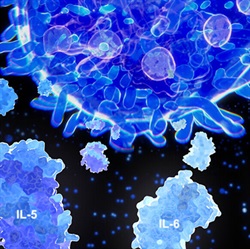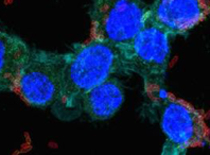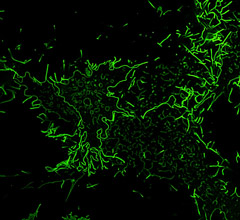
The Department of Pathobiology at the University of Pennsylvania, School of Veterinary Medicine is soliciting applications for one open rank tenure-track faculty position. We seek outstanding scientists who conduct research on viruses, bacteria, or parasites and/or the immune response to infection.
The Department of Pathobiology provides a stimulating environment of faculty with diverse expertise spanning basic, translational and clinical research on the cellular, molecular and biochemical basis of infectious and inflammatory diseases.
Research at Penn Vet
The primary focus of the research at Penn Vet is to understand diseases of animals to improve animal health, and to provide translational knowledge to advance human health.
Our faculty are leaders in their areas of specialty, and have made significant contributions through their research to global health. Several of our faculty are dually appointed with Penn Medicine, as well as other schools and programs at the University of Pennsylvania. Many work collaboratively with other institutions here in the United States and throughout the world.
Learn more about research at Penn Vet...
Department of Pathobiology
The Department of Pathobiology is dedicated to teaching and research in pathology, infectious diseases and immunology, and laboratory animal medicine.
Located on both the Philadelphia and New Bolton Center campuses, it has an outstanding reputation for fundamental research, and provides crucial clinical services for the School and the State.
Research Centers, Labs & Cores
Penn Vet offers a wide range of research centers, laboratories, initiatives, and cores. Highlights in the Department of Pathobiology include:

The Institute for Infectious & Zoonotic Diseases
The emergence of antibiotic resistance to infections – particularly in hospital settings – creates a public health blind spot, while emerging and re-emerging infectious zoonotic agents continue to grow at alarming speed. The Institute for Infectious & Zoonotic Diseases (IIZD) is dedicated to expanding research of infectious agents and advancing our ability to react to new diseases - both locally and globally - for the benefit of populations and communities.
Center for Host-Microbial Interactions (CHMI)
 We study the biological basis of diseases caused by microbes – whether it be a parasitic worm, a pathogenic bacterium, or a complex microbial community in the gut. Our group makes up the Center for Host-Microbial Interactions, at PennVet, and our research leverages a diverse skill set that cuts across the disciplines of genomics, microbiology and immunology. We engage in collaborative projects that benefit from close interactions with veterinarians and human clinicians alike. Our research embodies the idea of One-Health - that humans, animals and the environment are interconnected, and that we all live in a microbial world. We are located at the The University of Pennsylvania, in the Department of Pathobiology.
We study the biological basis of diseases caused by microbes – whether it be a parasitic worm, a pathogenic bacterium, or a complex microbial community in the gut. Our group makes up the Center for Host-Microbial Interactions, at PennVet, and our research leverages a diverse skill set that cuts across the disciplines of genomics, microbiology and immunology. We engage in collaborative projects that benefit from close interactions with veterinarians and human clinicians alike. Our research embodies the idea of One-Health - that humans, animals and the environment are interconnected, and that we all live in a microbial world. We are located at the The University of Pennsylvania, in the Department of Pathobiology.
Research Cores
The Comparative Pathology Core
The Comparative Pathology Core at the University of Pennsylvania School of Veterinary Medicine aims to provide the expertise of our board-certified veterinary pathologists to support investigators utilizing animal models to study disease.
 Imaging Core
Imaging Core
The Penn Vet Imaging Core (PVIC) was established to provide access to cutting-edge optical imaging capabilities for the University of Pennsylvania, Children's Hospital, and Wistar Institute biological and biomedical research communities. The PVIC includes three confocal microscopes and a widefield TIRF microscope, each of which is configured for intravital, live cell and fixed specimen imaging. The Core Director and Manager have over 50 years of combined imaging experience and are focused on making this technology accessible to all labs, regardless of prior level of experience.
About Penn Vet
Ranked among the top ten veterinary schools worldwide, the University of Pennsylvania School of Veterinary Medicine (Penn Vet) is a global leader in veterinary education, research, and clinical care. Founded in 1884, Penn Vet is the first veterinary school developed in association with a medical school. The school is a proud member of the One Health initiative, linking human, animal, and environmental health.
Penn Vet serves a diverse population of animals at its two campuses, which include extensive diagnostic and research laboratories. Ryan Hospital in Philadelphia provides care for domestic/companion animals, while New Bolton Center, Penn Vet’s large-animal hospital on nearly 700 acres in rural Kennett Square, PA, cares for horses and livestock/farm animals. New Bolton Center’s campus includes a swine center, working dairy, and the Pennsylvania Animal Diagnostic Laboratory System that provide valuable research for the agriculture industry.